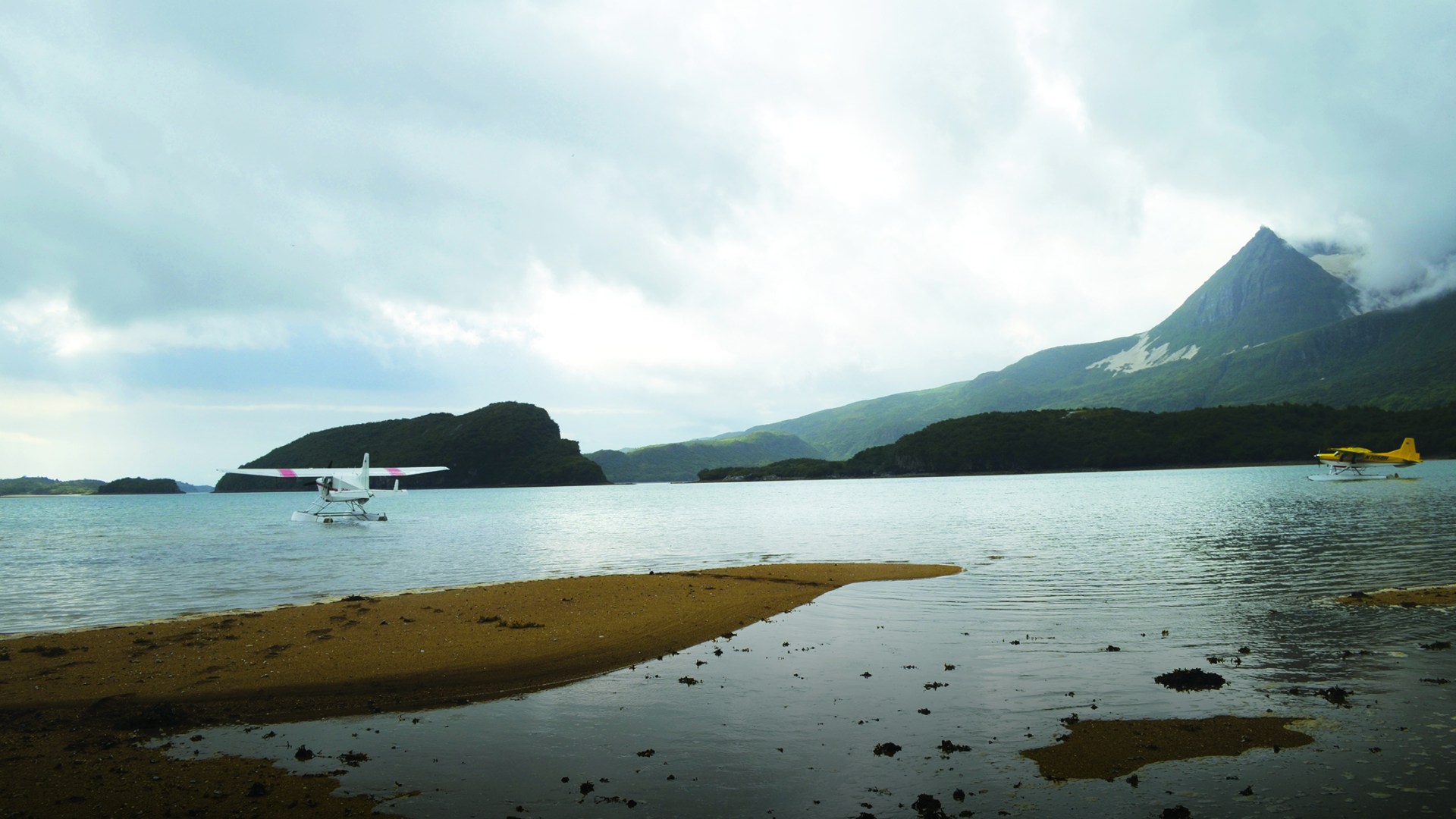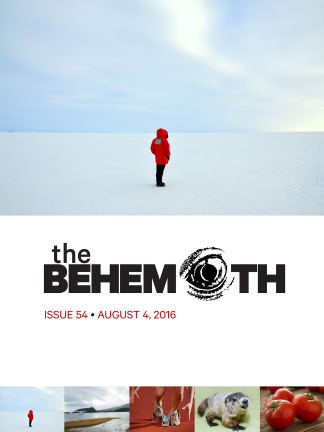“Bears are not companions of men, but children of God, and his charity is broad enough for both. . .” —John Muir
It takes just 12 minutes to fly from my island to Geographic Harbor. Our floatplane lands on the misty bay with fogged mountains rising above us. We’re in Katmai National Park, one of the least visited parks in the US. It’s a raw exotic wilderness, home to Novarupta, the biggest volcanic eruption of the 20th century. Six volcanoes still fume, earning the park’s more familiar name, “The Valley of Ten Thousand Smokes.” But we are not here today to view the park. We’re here for something else.
We step our hip-booted legs out onto the pontoon and into the tidal river. I’m in my own backyard, just 50 miles away from my fish camp island off Kodiak Island, where my family and I commercial fish for salmon, but the volcanic landscape feels a continent away. It is only minutes, a short wade through the river, when I first see them. This time, among bears, I do not carry a gun. I am not shouting and singing to warn them away. This time, I hope to get close.
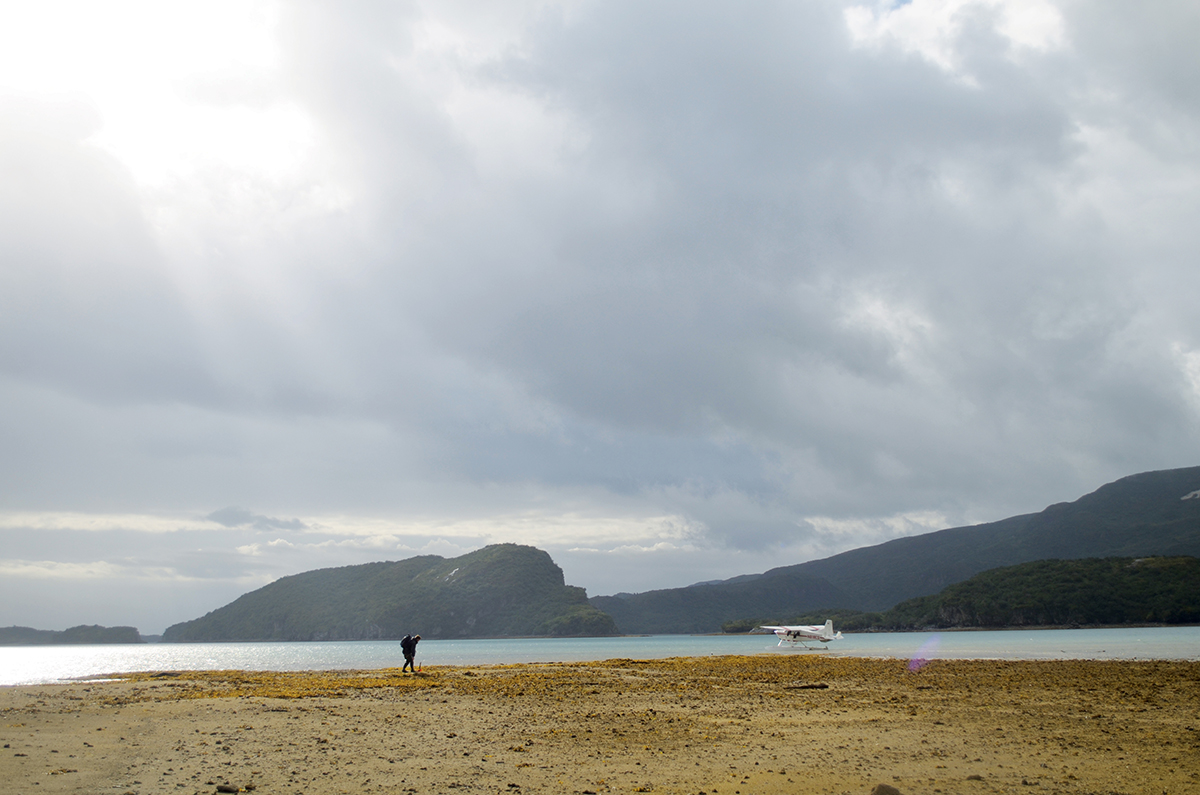
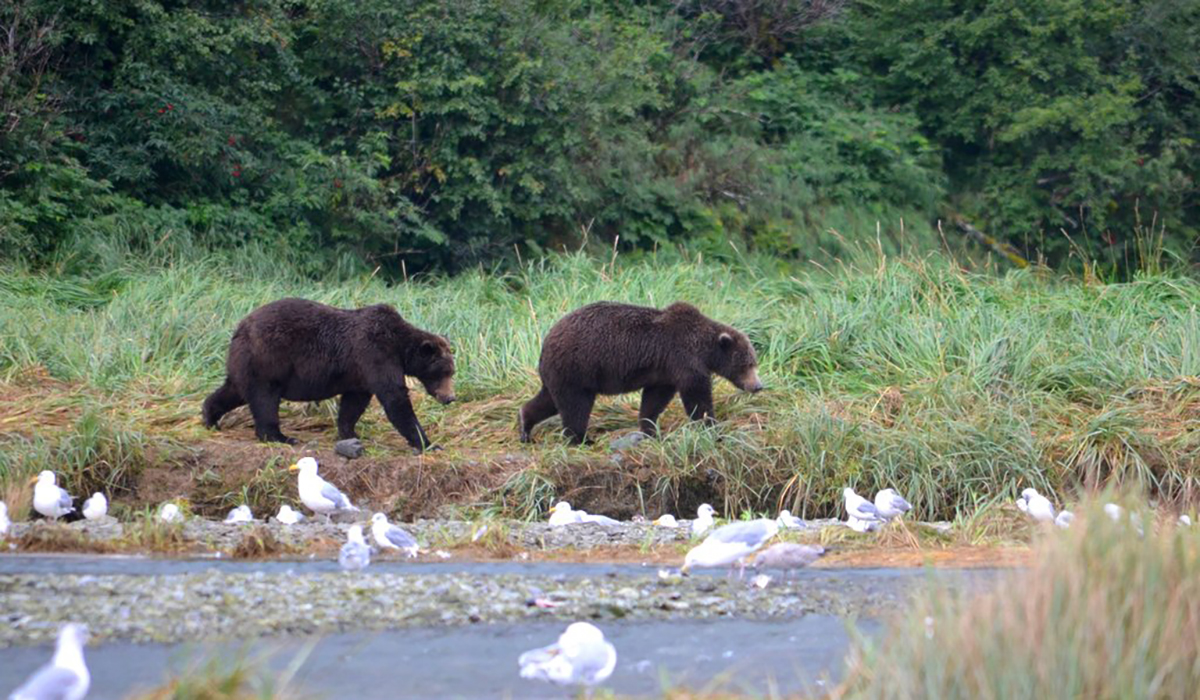
We’re here for the bears. These are coastal brown bears that grow larger than the grizzlies inland and further north. Twenty-two hundred live in the park’s four million acres. I count just eight of them here on the tidal flats this September afternoon. Sometimes there are dozens. We are here for them. They are here for the salmon.
There is no viewing platform. We walk and stand in the same waters they are fishing. We stand among bears with nothing between us but air, water, and the can of pepper spray our guide keeps in his pocket.
I am there with five friends and my camera. Sometimes the bears get so close I have to take off my zoom lens. But I am not afraid. I trust them. Or rather, I trust their appetite. They are here to fill their bodies until bulbous and bursting. They are here to feast for the coming fast of winter. I know this, too, how sweet the flesh and fat of salmon, as my family and I sup around our table just across the waters. We, too, eat against the coming dark.
We stand watching for two hours. They are hardly graceful, these bruins. They galumph into the water, launching their half-ton weight upon a five-pound salmon, if they are lucky. They miss as many as they catch. We are salmon fishers too, chasing no more gracefully after the schools that stream past our island. We use nets rather than claws, but like the bears, we miss as many as we catch.
I recognize their hunger and their need. The gulls, like rodeo clowns, harass them as they feed. The males tease and bully one another. The bears are more expressive up close than I knew.
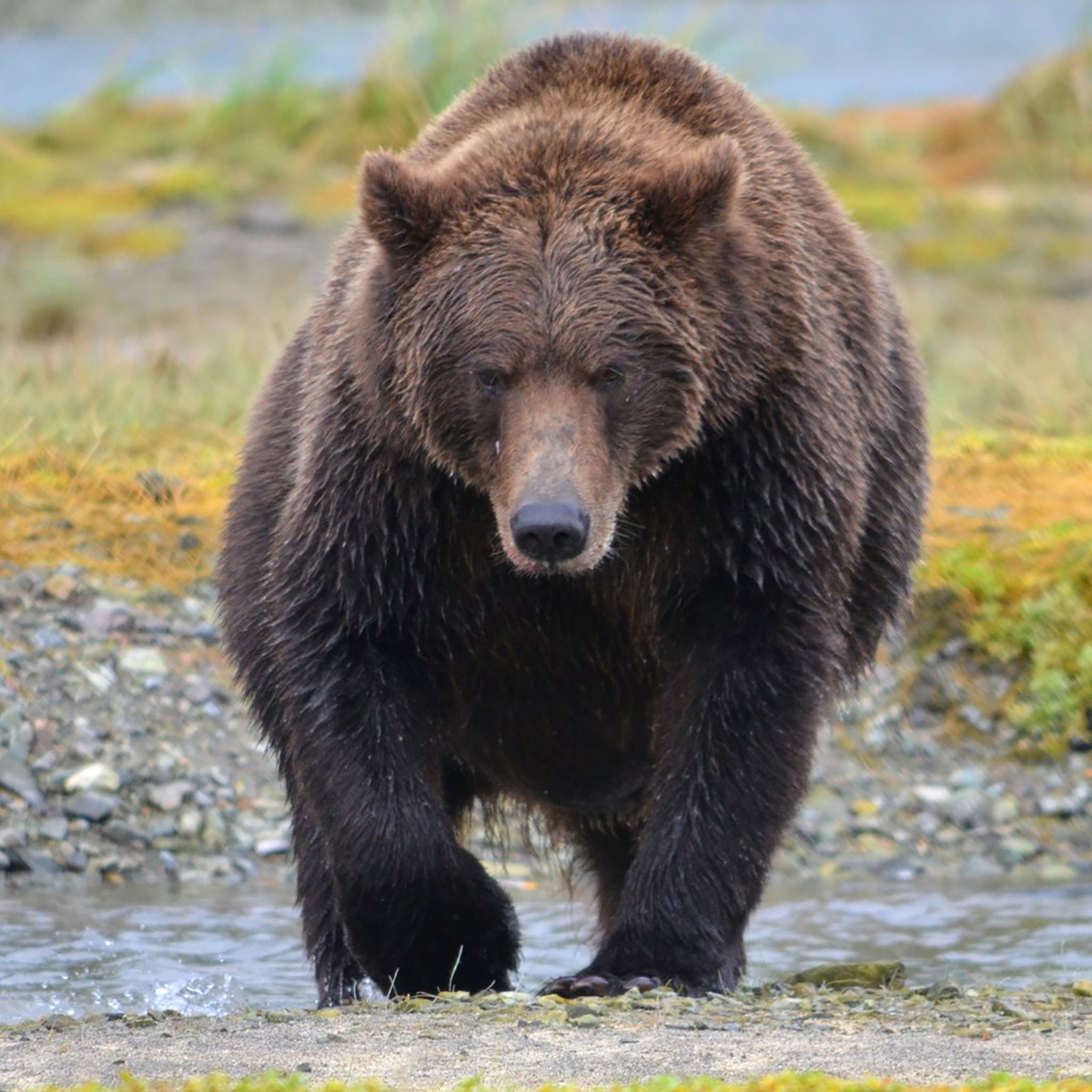
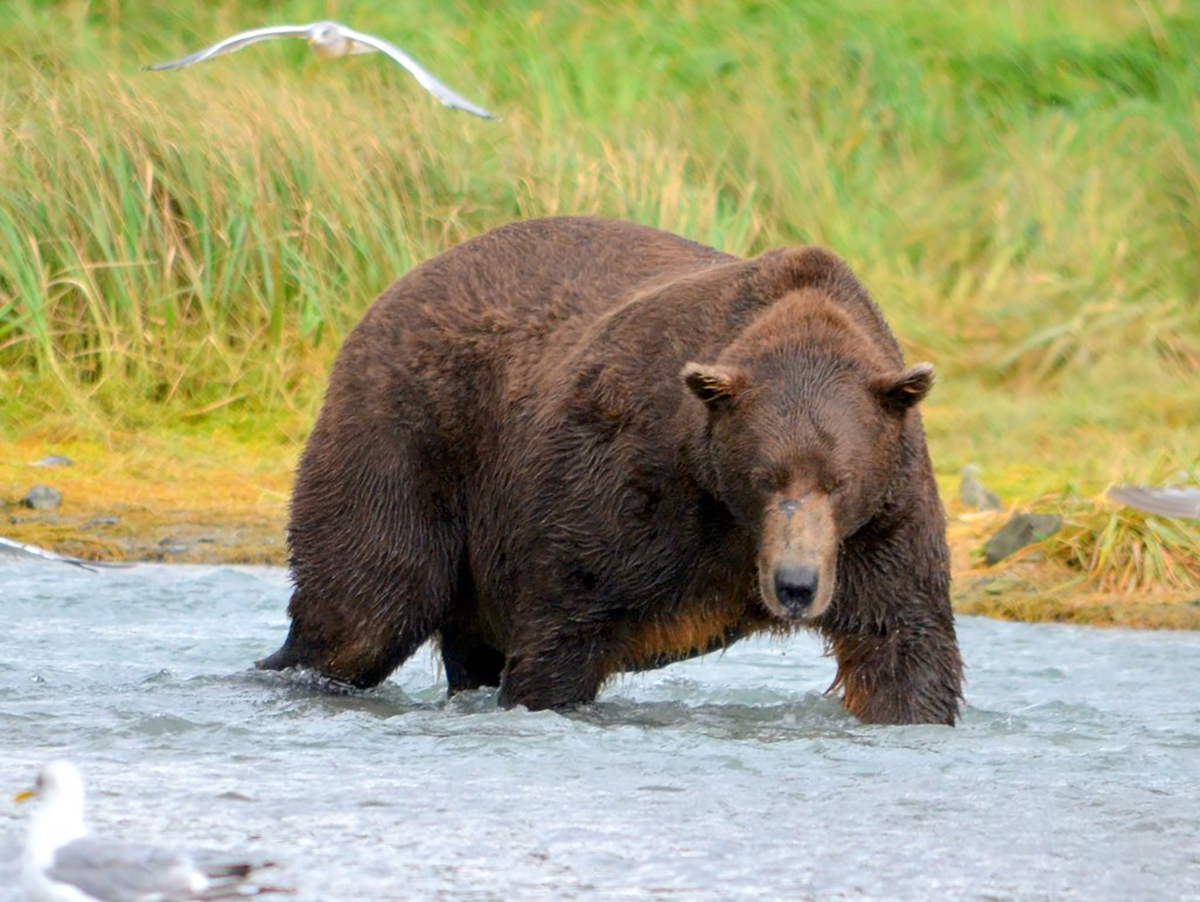
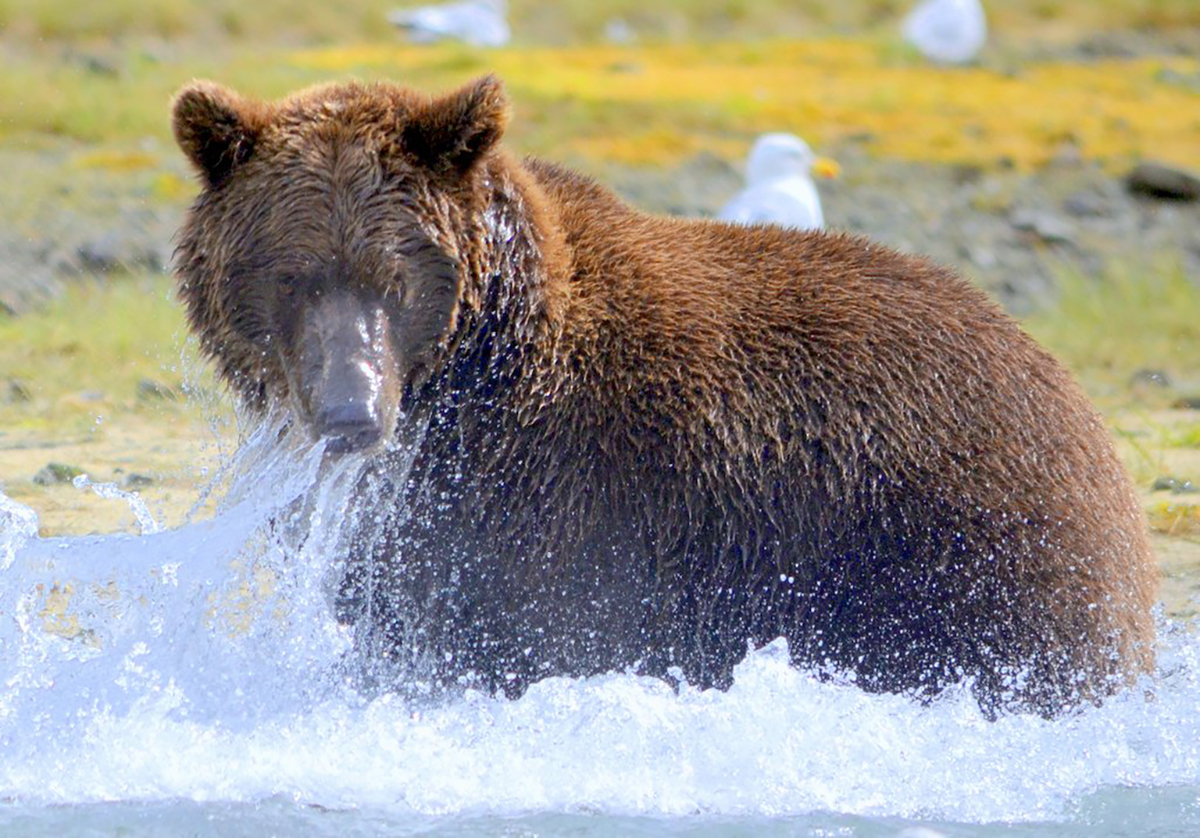
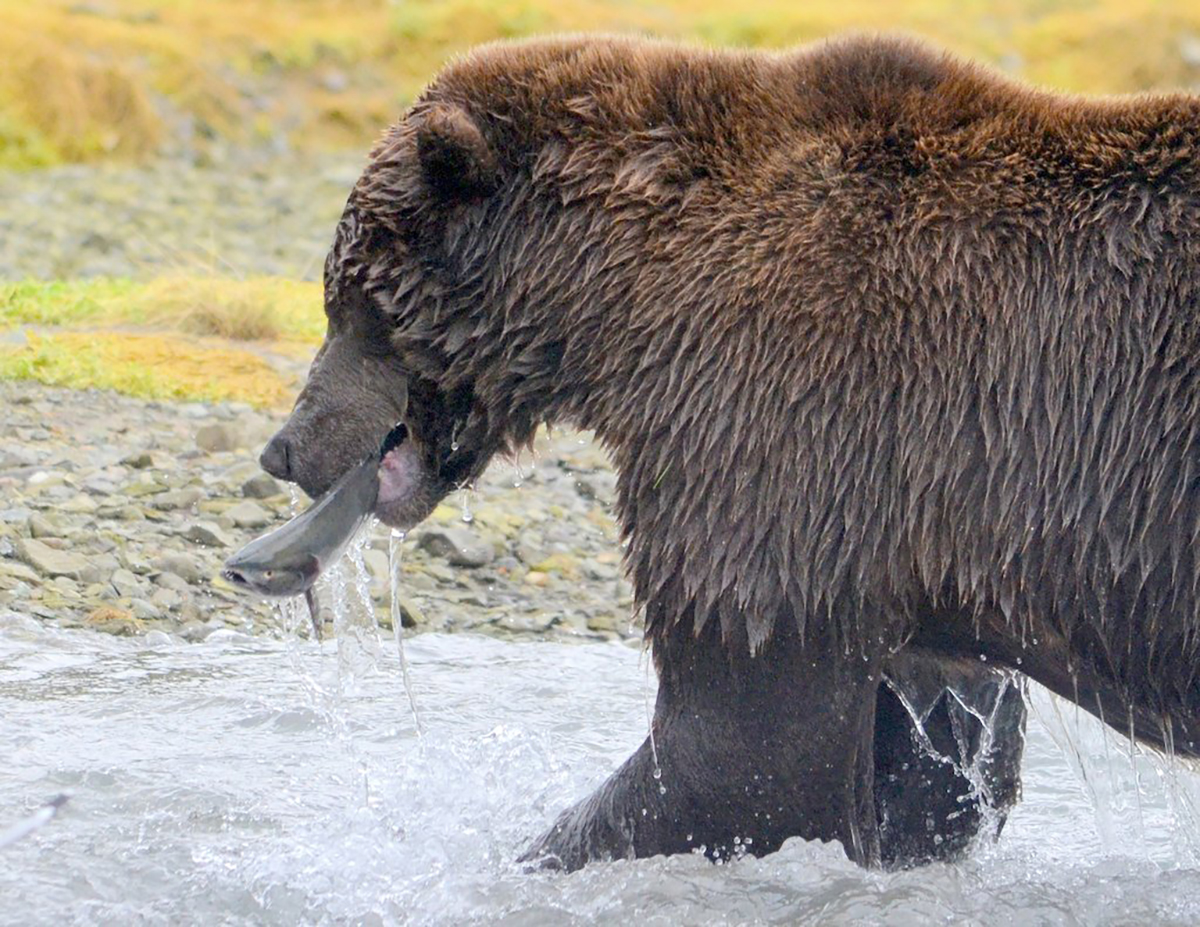
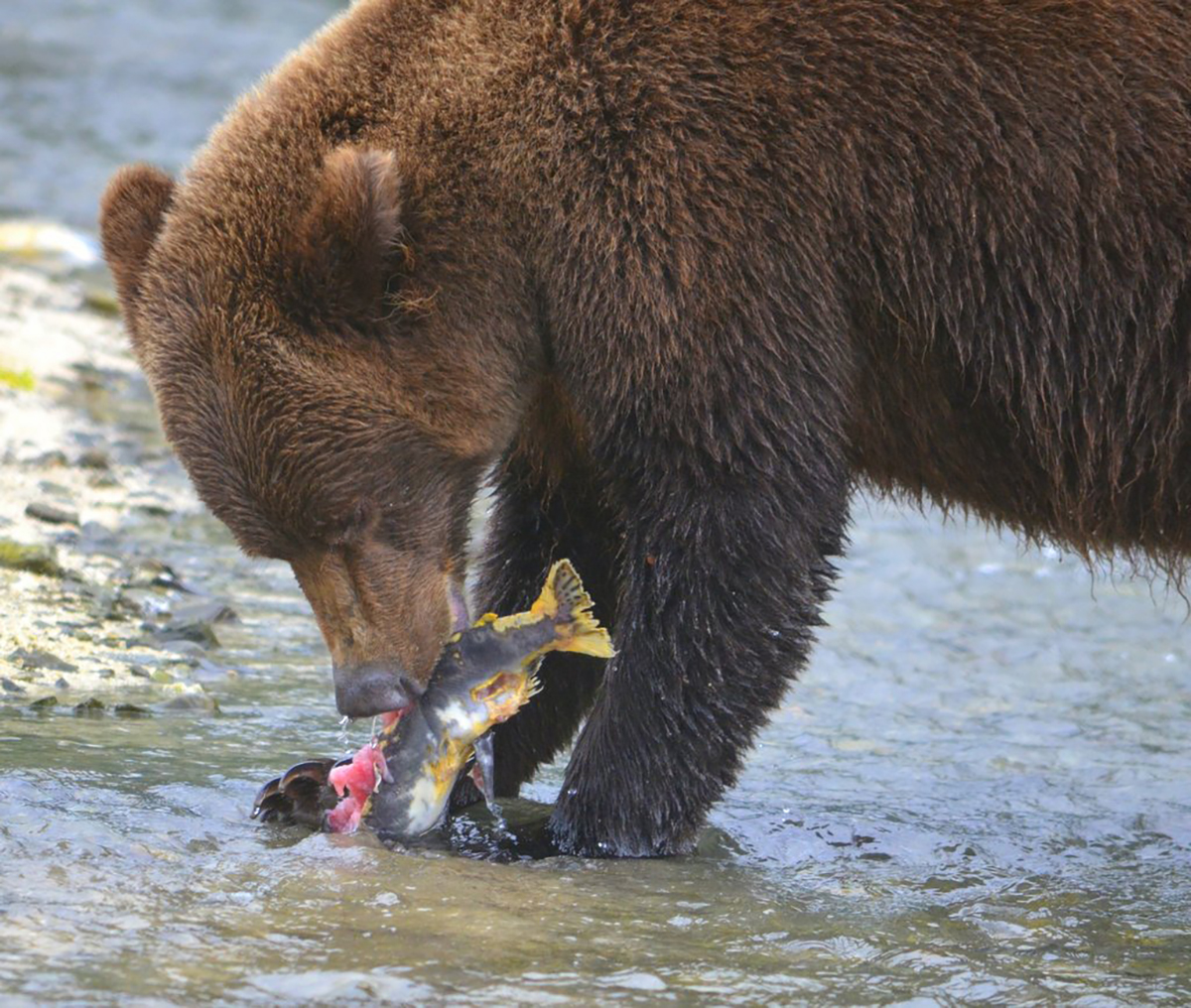
But these bears are not my brothers. I live on Kodiak Island, boasting the highest density of bears in the world. Like everyone else on the island, I avoid them. But they do not always return the favor. They swim over to our fish camp and eat our salmonberries. They ate our horse one year. And while God owns the cattle on a thousand hills, the bears apparently do as well. Over the course of five years they swam over and ate every one of our 35 cattle. I think of all this when I watch them. I am glad this time to be visiting them instead of them visiting us.
These bears will soon be ready for winter. Are they glad? Do they know deep in their bear heart that it is God himself who feeds them? “All creatures look to you to give them their food at the proper time,” the psalmist wrote. “When you give it to them, they gather it up . . . they are satisfied with good things.” They are satisfied indeed. I am a creature as well, feasting on their feeding, more than satisfied. And yet I know—they do not—that there is more to come. Someday the lion will eat straw, the prophets tell us, and the “cow and the bear will graze” together; their young will lie down together, gentle and safe. Standing here now, a woman among bears, I can almost imagine that day.
Leslie Leyland Fields (@leslielfields) is the author of several books, including Crossing the Waters: Following Jesus through the Storms, the Fish, the Doubt, and the Seas, due out in October from NavPress.

